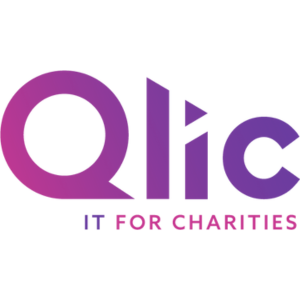Insights
INSIGHTS
All Topics
My Account
How to combat compassion fatigue
26 Oct 2021by Christine Chiu
Re-energising your volunteer force takes a bit of creativity but is worth it. Combat compassion fatigue by reaching out and listening to your supporters
Audiences worldwide are inundated with calls for action. Lurching from disaster relief to COVID-19 donations, volunteers and supporters are stretched.
Described as compassion fatigue, the symptoms include apathy, helplessness, and lack of energy. For those engaging in charity work, Psychology Today magazine says: “People who actively engage in charity, or volunteering, may come to feel that they cannot commit any more energy, time, or money to the plight of others because they feel overwhelmed or paralyzed by pleas for support and that the world’s challenges are never-ending.”
With so many victims to help, it’s no wonder that volunteers are feeling apathetic about their ability to make an impact. For those feeling the pinch, we introduce seven creative ways to get the jazz back into your volunteer force.
-
Thank your volunteers
Sounds simple, but thanking your supporters drums up more energy and dedication. Volunteer Hub notes that showing and saying thanks boosts retention rates and converts volunteers into long-term supporters.
To counter and avoid compassion fatigue, take the time to genuinely appreciate your volunteers. As a start, the NCVO suggests acknowledging the contribution – a wholehearted thank you, without an ask for donations or more time.
-
Use positive imagery
Keep things cheery for your volunteer workforce. Positive imagery shows how donations and volunteers make an impact for recipients. Like Charity, the consultants, says that: “Charities can also use images of volunteers or fundraisers they have had, show a group of people willingly advocate or fundraise for a cause. Donors who are exposed to positive charity adverts made donations worth 45% more on average.”
To add to the positive sentiment, encourage recipients to thank your volunteers. Remember, there are creative ways to do this. Whether it’s a video recording, a digital or an in-person message, uplifting imagery goes a long way to combatting compassion fatigue.
-
Set boundaries
Carve out boundaries and give your volunteers time to relax and decompress. For the most part, setting boundaries is up to the volunteer manager.
Make sure that the roles of your volunteers are clearly defined, so that nobody is overworked. To manage your supporters, CRM systems are useful because they can keep track of who has already volunteered and when.
-
Get organised
Make sure that your volunteer programme is well organised and up to date. To counter compassion fatigue, charities need all the details about their volunteers, as if they were employees themselves. Keep track of volunteer names, hours, preferences, and specialist skills.
Volunteer management systems combat compassion fatigue by providing all the details around who, what, where, and when work is happening. Then, programme managers can effectively plan around volunteers’ skill sets.
Charity digital leaders can also manage the calendar and scheduling to ensure that burn out and compassion fatigue doesn’t happen. Avoid asking for time when you know volunteers are busy or unlikely to show up.
Our top professional tip for charity digital leaders is to use the system outputs to gauge trends in giving and volunteerism.
-
Ask for feedback
Volunteer roles are crucial and, for many, very busy. Unlike charity staff, volunteers seldom get an opportunity to feedback to managers. Just think – your volunteers perform tasks, but they don’t get a chance to air out any concerns they might have. To combat compassion fatigue and underlying frustrations, have those difficult conversations.
The NCVO recommends that: “If someone is having a difficult time with the emotional aspects of their work, the best people to talk to are the other people in the same position. Make sure you’re having enough meetings where everyone can sit down and discuss the heavy aspects of a project.” Better yet, the organisation also advises that if there is access to professional counselling, that it’s made available.
-
Help your volunteers make connections
Avoid and steer clear of compassion fatigue by building connections. For charity staff and volunteers alike, it’s important to organise away days and social events.
Events help to build team comradery and shared experiences. They also combat compassion fatigue because volunteers get a shared sense of purpose and have other people to lean on when things get tough.
Remember, make your social events hybrid to engage as many volunteers as possible.
-
Make mental health a priority
While they don’t get paid for the work that they do, volunteers are part of your team. To fully appreciate their work, it is important to take care of them. Make mental health resources available.
Charities large and small can provide guidance on where to look, including referring volunteers to Our Frontline. Appoint a charity staff member as a Mental Health First Aider to let your volunteers know you’re taking their situation seriously.
More on this topic
07 Mar 2025by Laura Stanley
An introvert’s guide to networking
27 Feb 2025by Laura Stanley
Charity Spotlight: Dr Anton Mari Lim, President, Yellow Boat of Hope Foundation
Recommended Products
Our Events
Charity Digital Academy
Our courses aim, in just three hours, to enhance soft skills and hard skills, boost your knowledge of finance and artificial intelligence, and supercharge your digital capabilities. Check out some of the incredible options by clicking here.















